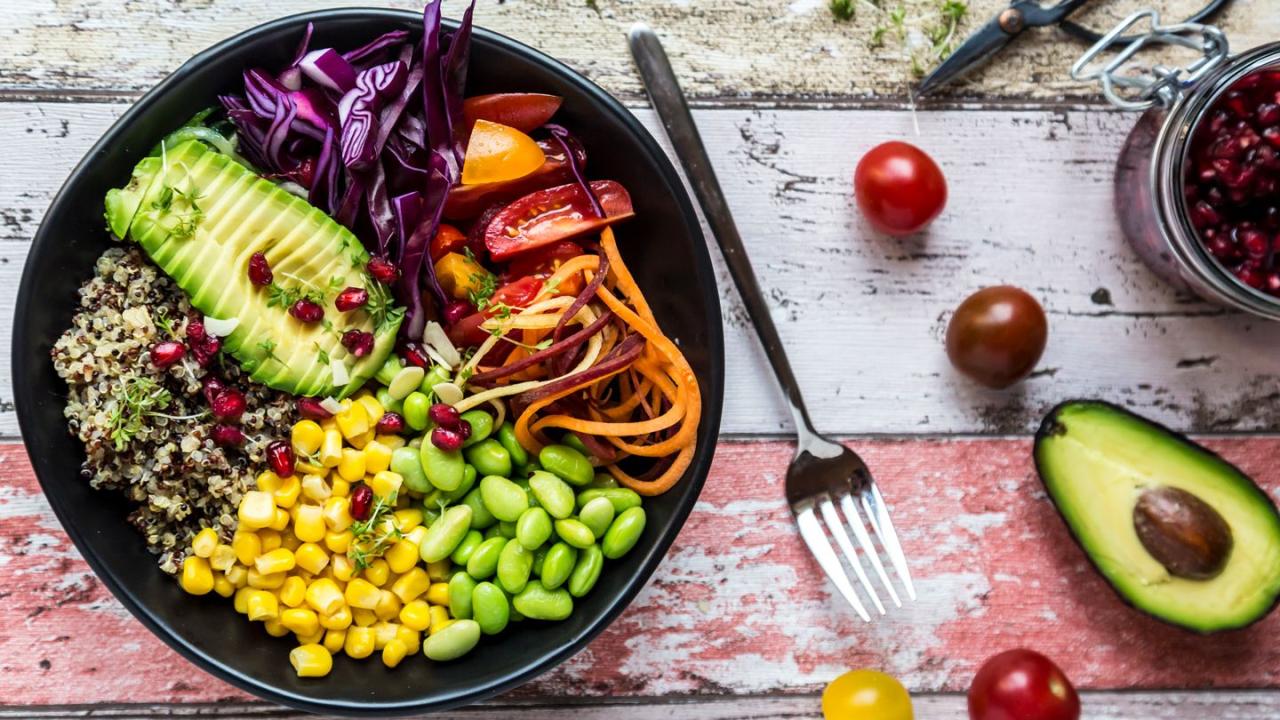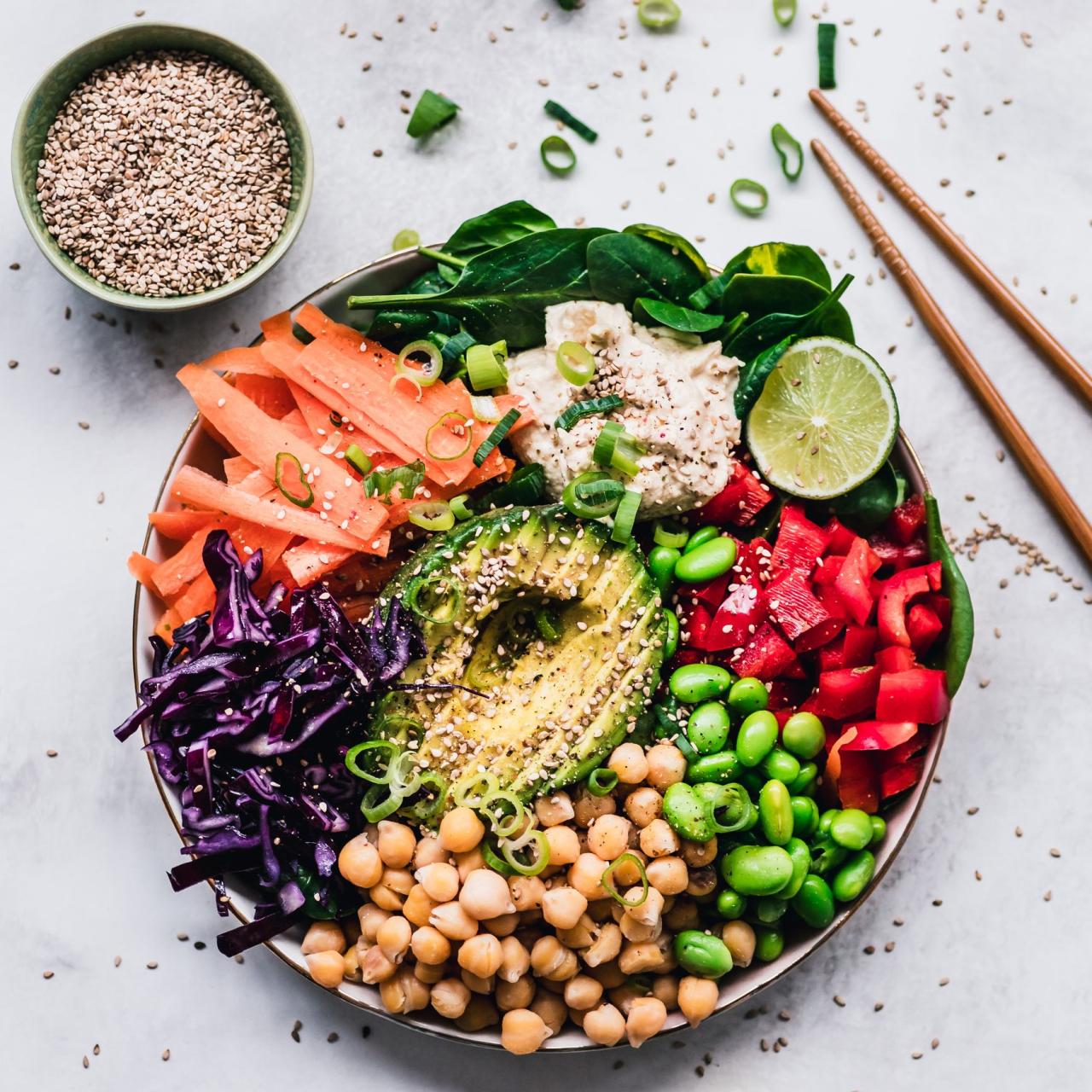Embarking on a vegetarian journey unveils a world of nutritious possibilities. However, navigating the complexities of a plant-based diet requires careful attention to avoid potential pitfalls. This comprehensive guide delves into the intricacies of what not to eat as a vegetarian, empowering you with the knowledge to make informed choices and maintain a healthy, ethical lifestyle.
From deciphering food labels to understanding cross-contamination risks, this exploration unravels the hidden aspects of vegetarianism, ensuring you make mindful decisions that align with your values.
Potential Nutritional Deficiencies
Vegetarian diets can be rich in nutrients, but they may also pose a risk of certain nutritional deficiencies. This is because some nutrients are predominantly found in animal products, and vegetarians may need to make a conscious effort to obtain these nutrients from plant-based sources.
Here are some of the nutrients that vegetarians may be at risk of being deficient in:
Iron
Iron is an essential mineral that is involved in the production of red blood cells. Iron deficiency can lead to anemia, which can cause fatigue, weakness, and shortness of breath. Good sources of iron for vegetarians include beans, lentils, tofu, and fortified cereals.
Vegetarian diets are becoming increasingly popular, offering a wide range of health benefits. What can you eat as a vegetarian ? Fruits, vegetables, and whole grains form the foundation of a vegetarian diet, providing essential vitamins, minerals, and fiber.
Vitamin B12
Vitamin B12 is a water-soluble vitamin that is involved in the production of red blood cells and the functioning of the nervous system. Vitamin B12 is only found in animal products, so vegetarians need to make sure to consume fortified foods or take a supplement to get enough of this nutrient.
Calcium
Calcium is a mineral that is essential for strong bones and teeth. Good sources of calcium for vegetarians include dairy products, fortified plant milks, and leafy green vegetables.
Omega-3 fatty acids
Omega-3 fatty acids are essential fatty acids that are important for heart health and brain function. Good sources of omega-3 fatty acids for vegetarians include flaxseed, chia seeds, and walnuts.
Protein
Protein is an essential macronutrient that is involved in the building and repair of tissues. Good sources of protein for vegetarians include beans, lentils, tofu, and tempeh.
Common Foods to Avoid
As a vegetarian, it’s important to be aware of certain foods that are not suitable for your diet. Avoiding these foods will ensure you maintain a healthy and balanced vegetarian lifestyle.
The following table lists common foods to avoid as a vegetarian, along with their reasons for exclusion and alternative vegetarian options:
| Food Group | Specific Food | Reason to Avoid | Alternative Vegetarian Options |
|---|---|---|---|
| Meat | Beef, pork, lamb, chicken, turkey | Contains animal flesh | Tofu, tempeh, lentils, beans, nuts, seeds |
| Fish | Salmon, tuna, mackerel, cod | Contains animal flesh | Plant-based seafood alternatives, seaweed, algae |
| Seafood | Shrimp, lobster, crab, oysters | Contains animal flesh | Plant-based seafood alternatives, seaweed, algae |
| Eggs | Chicken eggs, duck eggs | Contains animal products | Tofu scramble, chickpea flour omelet, flax eggs |
Hidden Non-Vegetarian Ingredients
Vegetarians must be vigilant about checking food labels for concealed non-vegetarian components. These hidden ingredients can unintentionally compromise a vegetarian diet.
Embarking on a vegetarian journey can open up a world of culinary exploration. What can you eat as a vegetarian ? The possibilities are endless! Indulge in a vibrant palette of fresh fruits and vegetables, each offering a unique burst of flavors and nutrients.
Embrace the versatility of legumes, beans, and lentils, providing a hearty source of protein. Explore the wonders of tofu and tempeh, offering a plant-based alternative to meat. Uncover the hidden gems of vegetarian cheeses and yogurts, delighting your taste buds with creamy textures and tangy notes.
Common Non-Vegetarian Ingredients
Here’s a list of common non-vegetarian ingredients that vegetarians should be aware of:
- Gelatin: Derived from animal bones and skin, commonly found in desserts, candies, and marshmallows.
- Isinglass: A type of gelatin derived from fish bladders, often used in beer and wine clarification.
- Lard: Animal fat from pigs, sometimes found in baked goods, pastries, and crackers.
- Tallow: Animal fat from cows or sheep, used in some cooking oils and shortenings.
- Whey: A dairy byproduct, often found in protein powders, sports drinks, and baked goods.
- Casein: A milk protein, commonly used in cheese, yogurt, and processed foods.
- Carmine: A red food coloring derived from crushed insects, often found in candies, juices, and baked goods.
- Shellac: A resin secreted by lac insects, used as a glaze on candies, fruits, and vegetables.
Cross-Contamination Concerns: What Not To Eat As A Vegetarian

Cross-contamination is a significant concern for vegetarians, as it poses the risk of consuming non-vegetarian ingredients inadvertently. This can occur during food preparation, storage, or handling, leading to the transfer of animal-derived substances into vegetarian dishes.
To minimize the risk of cross-contamination, vegetarians should adopt certain precautions. These include:
Utensils and Cooking Surfaces
- Use separate utensils, cutting boards, and cookware for vegetarian and non-vegetarian dishes to prevent cross-contamination during preparation.
- Thoroughly clean and sanitize all surfaces and utensils that have come into contact with non-vegetarian ingredients before using them for vegetarian cooking.
Storage and Handling
- Store vegetarian and non-vegetarian foods separately in the refrigerator and freezer to avoid contact and potential cross-contamination.
- Use airtight containers to prevent the transfer of odors and flavors between different foods.
Eating Out and Prepared Foods, What not to eat as a vegetarian
- When eating out at restaurants, inform the server about your vegetarian dietary restrictions and inquire about the potential for cross-contamination.
- Choose vegetarian-friendly restaurants or establishments that have a proven track record of accommodating vegetarian needs.
- When purchasing prepared foods, carefully read the ingredient labels to ensure there are no hidden non-vegetarian ingredients.
Unintentional Consumption of Animal Products

Vegetarianism, with its emphasis on plant-based diets, often involves excluding animal-derived foods. However, vegetarians may inadvertently consume animal products in certain situations.
Common Scenarios for Unintentional Consumption
Unintentional consumption of animal products can occur in various scenarios:
- Food Labels:Reading food labels is crucial for vegetarians, as ingredients like whey, casein, and gelatin may be hidden in processed foods.
- Dining Out:Ordering vegetarian dishes at restaurants doesn’t guarantee animal-free meals, as cross-contamination or use of animal-based ingredients can occur.
- Ingredients Disguised:Some ingredients may appear plant-based but contain hidden animal products. For instance, natural flavors can sometimes derive from animal sources.
- Supplements and Medications:Gelatin is a common ingredient in capsules and supplements, and some medications may contain animal-derived ingredients.
Strategies for Avoidance
To avoid unintentional animal product consumption, vegetarians can implement the following strategies:
- Read Food Labels Carefully:Pay attention to ingredient lists and look for hidden animal-derived components.
- Ask Questions When Dining Out:Communicate dietary restrictions clearly to restaurant staff and inquire about potential cross-contamination.
- Research Ingredients:Familiarize yourself with ingredients that may be derived from animal sources, such as whey, casein, and gelatin.
- Choose Plant-Based Supplements:Opt for vegan-certified supplements to ensure they’re free from animal-derived ingredients.
- Be Aware of Medications:Consult with healthcare professionals to discuss medications and ensure they’re suitable for vegetarians.
By following these strategies, vegetarians can minimize the risk of unintentionally consuming animal products and maintain their commitment to a plant-based lifestyle.
Closing Notes
As you embrace a vegetarian lifestyle, remember that knowledge is your ally. By understanding the nuances of what not to eat, you can navigate the culinary landscape with confidence. Embrace the abundance of plant-based options and savor the joy of a compassionate and healthy diet.
Quick FAQs
What are some common non-vegetarian ingredients that vegetarians should be aware of?
Gelatin, rennet, whey, casein, and lard are all derived from animal sources and should be avoided by vegetarians.
How can vegetarians minimize the risk of consuming non-vegetarian food due to cross-contamination?
When eating out, ask about cross-contamination policies and choose restaurants that take precautions. When purchasing prepared foods, carefully read ingredient lists and look for vegetarian certifications.
What are some examples of situations where vegetarians may unintentionally consume animal products?
Unintentional consumption can occur through shared cooking utensils, hidden ingredients in processed foods, or medications containing animal-derived gelatin.